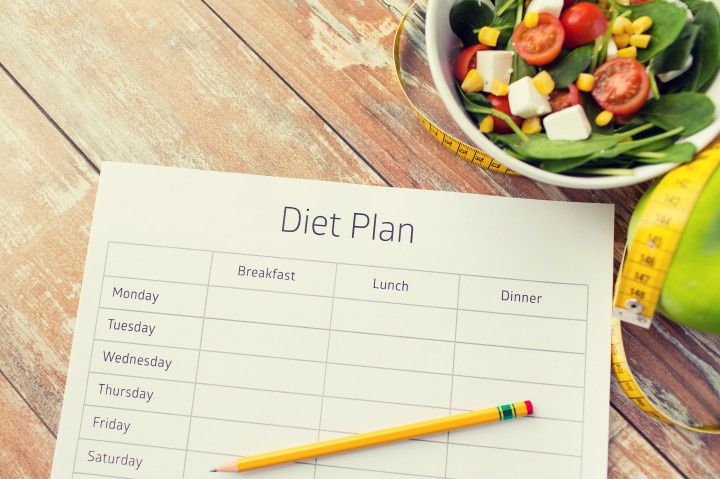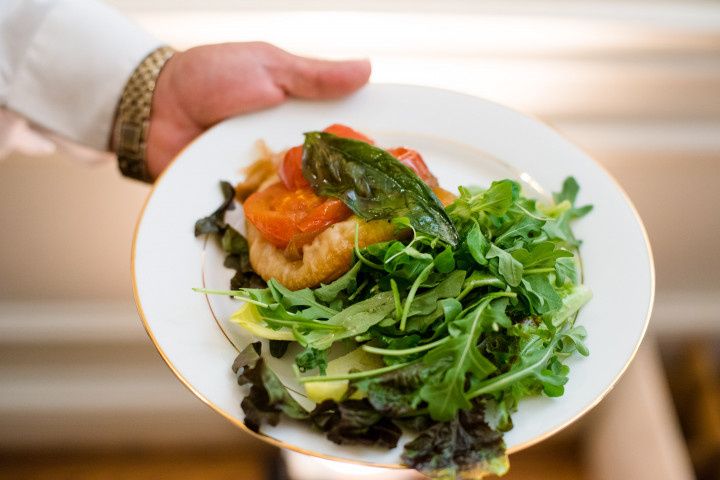Don’t Try These Wedding Diets, Experts Say
Looking to shed a few pounds before your big day? These wedding diets are not the way to do it, nutritionists say.


If you’re pulling out all the stops to shed some weight, or at least get in better shape, before your wedding, you’re far from alone. In fact, more than 70 percent of brides-to-be try to drop more than 20 pounds before their big day, according to a study by Cornell University and National Institutes of Health. While, of course, you want to look your very best on your big day, the pressure to change your appearance to such a degree with a wedding diet only adds stress to an already-stressful time.
“It can often feel like a deadline that you need to meet your goal by,” says Justine Roth, M.S., R.D., in New York City. “Regardless if the intentions started off with just wanting to feel comfortable in their skin on their wedding day when that much pressure is attached to anything it starts to become rigid and often disordered.”
Aiming to live a healthier lifestyle as your wedding day approaches, however, is a different story. “Staying active can give the body a more fit appeal and eating healthy can help boost metabolism and help you appear leaner,” says Robert Ferguson, M.S., C.N. of Diet Free Life. Cleanses, juices and drastic wedding diets, however, should be 100 percent off the table, as experts say they create unrealistic expectations and inflexible goals that are hard to attain.
Here are some of the most popular wedding diets they recommend avoiding at all cost.
Keto
This diet, which calls for a high-fat, low-carb and low-protein meal plan, is quickly gaining popularity for its weight-loss benefits. However, it’s hardly attainable long-term, according to experts. “In some clinical reviews, it is practically guaranteed that patients who go low-carb are doomed to regain the weight back,” says Ferguson. “Plus, when people are in ketosis, the side effects which includes frequent urination, dizziness and drowsiness, constipation at times, diarrhea, cravings for sugar, and low blood sugar.”
Juice cleanses
This method, which allots mostly (or only) juice for the dieter for 3 to 5 days, causes a drop in water weight fairly quickly. Because this drop in water weight also means a drop in pounds, it is quite popular among brides-to-be. However, it also causes super low energy and extreme hunger, not to mention that consuming large amounts of sugar, found in the juices, is not healthy. “As a result, your blood sugar will spike and then drop quickly, resulting in moodiness, irritability, fatigue, etc.,” warns Eliza Savage, R.D., in New York City. “Once you start eating food again, you will likely regain all that you lost....and more.”
Intermittent fasting
While not necessarily a “wedding diet plan,” this is an eating habit many brides fall into when trying to slim down for their big day. “This is a type of dieting that cycles between long periods of fasting and not fasting in order to lose weight,” warns Roth. “It is extremely damaging to your metabolism and very hard on your body and mind when in the fasting states.”
The good news is that weight loss doesn’t have to involve wedding diets at all, and can be relatively simple. Ferguson recommends drinking more water opposed to soda, sweetened iced tea and alcohol and making it a goal to begin your day with a meal or at least a snack. “Most people aren’t aware that one of the three ways we burn calories is when we eat,” he says. “The metabolism does slow when you go long periods (over four hours) without eating.”
Overall, a balance of diet and exercise to lose weight and feel great. “The best way to look at it is 80 percent nutrition and 20 percent working out,” says Savage. “If your nutrition is on point, your workouts will soar!”





